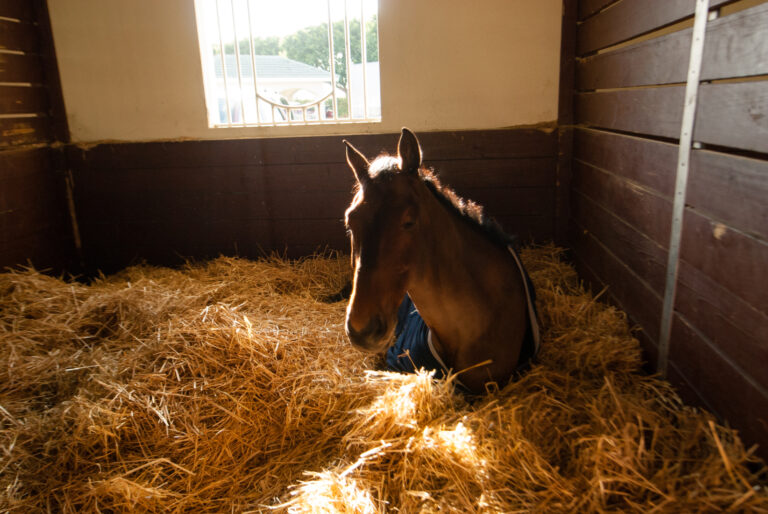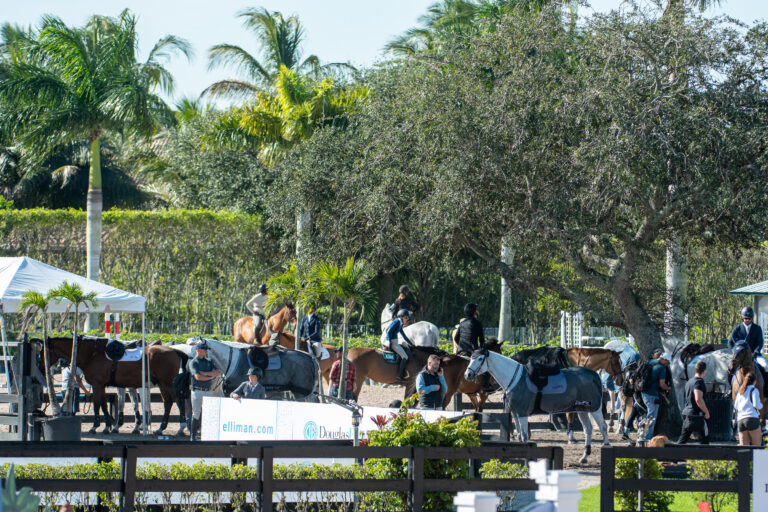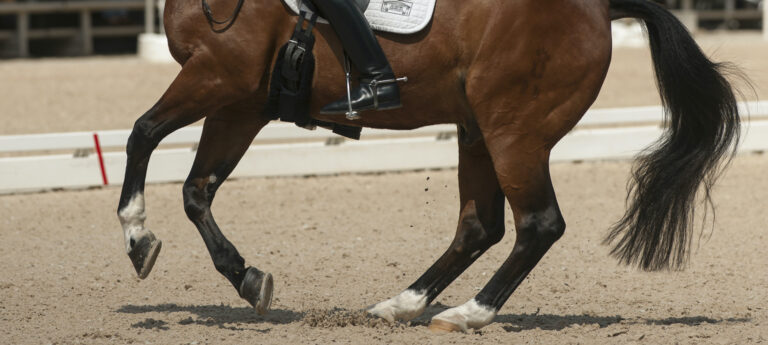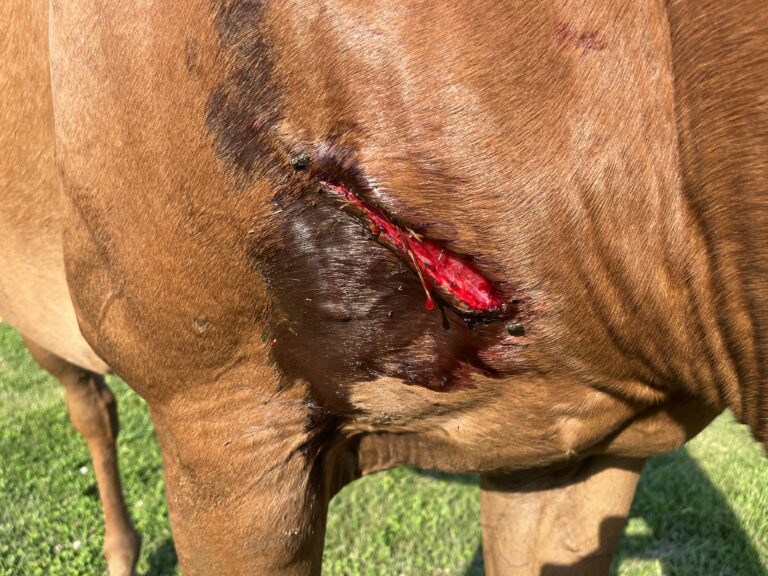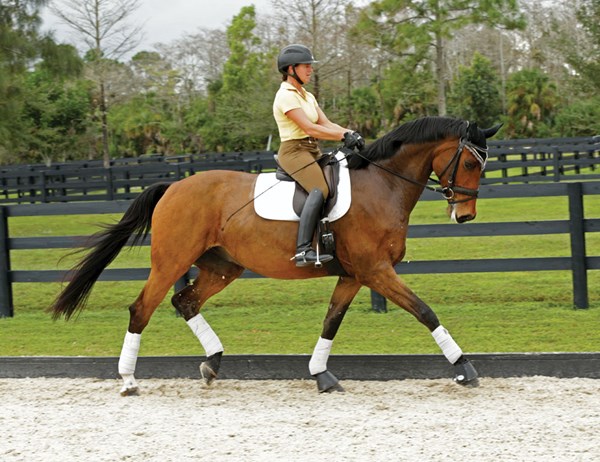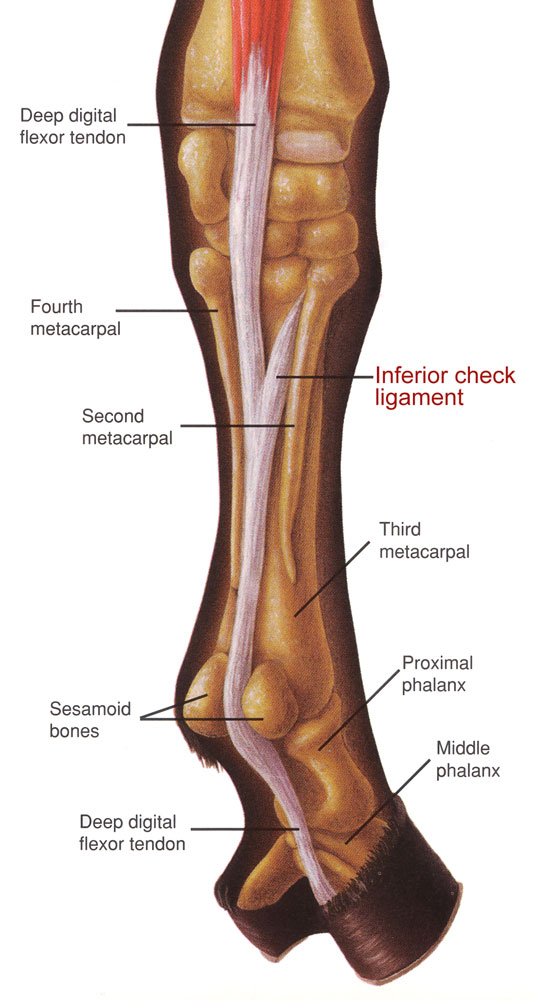Dressage horses are frequently just hitting their prime at ages when in other disciplines the competitive edge is beginning to fade. It is not uncommon now to see dressage horses performing well into their 20s and even 30s. There have been many recent surveys/studies of performance and nutrition in aging horses that I will briefly summarize here.
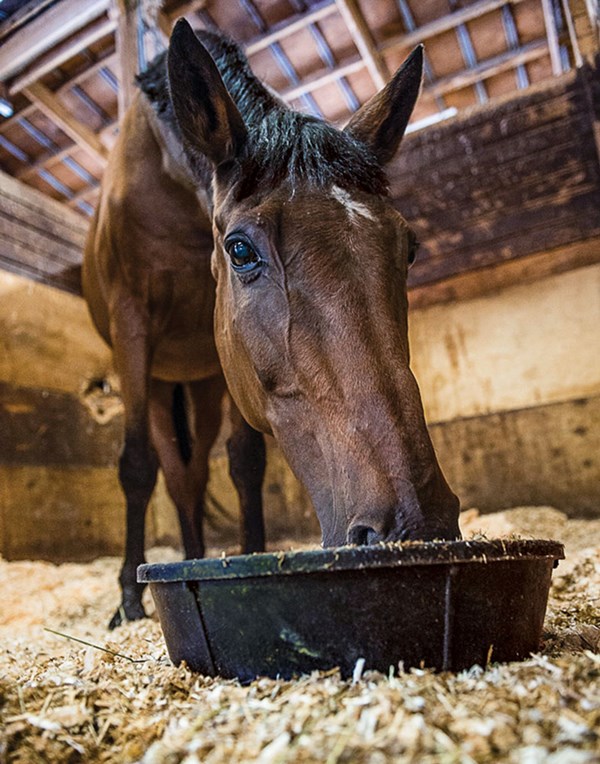
Just because a horse is over 18 or 20 years old does not necessarily mean he needs changes in his feeding. As long as he is maintaining good body condition, energy and overall health, don’t mess with success just because his chronological age is advancing. There is no magic age at which all horses need nutritional help.
If the old campaigner begins to falter, however, with weight loss, chronic infections, long hair coat that fails to shed, arthritic changes, etc., it is time to re-evaluate the horse’s feeding and nutrition.
However, it is critical that before you switch the horse to a senior formula or supplement, you get a thorough veterinary work-up. The focus should be on common ailments associated with aging in old horses: metabolic disorders associated with pituitary dysfunction, liver and kidney failure, dental abnormalities and a wide variety of arthritic changes. Dental abnormalities should be corrected if possible and arthritic issues should be addressed appropriately, which might resolve any problems. The arthritic horse probably would benefit from being maintained in a leaner body condition (a score of 4 to 5 out of 9) than that one often seen in the dressage arena (a score of 6 to 7). Since thermoregulation is less efficient in old horses, maintaining lower body weight in the summer will help protect against heat stress. But in the winter, it would be beneficial to put a bit of added fat back on to help insulate from the cold.
As long as the liver and kidneys are not compromised, putting the older horse on a higher fat (7 to 10 percent), higher protein (12 to 16 percent) feed can sometimes help maintain that glow and peak performance. If there are metabolic issues related to insulin resistance/pituitary dysfunction, there are a wide range of low-carbohydrate feeds on the market now that might fit the above profile.
Access to hay should not be restricted unless there are severe, uncorrectable dental issues that prevent adequate mastication of long stem hays/grasses. Even though most senior feeds are designed to be complete feeds that technically can be fed without access to long-stem forages, I am not aware of any that can be fed free choice or that have enough fiber content to prevent gastric ulcers/wood chewing if fed as the sole source of nutrition.
The only supplements outside the usual salt and electrolytes that might be beneficial would be if there are issues with chronic infections and pituitary dysfunction. In that case, adding supplemental B vitamins, and the antioxidants vitamin C and vitamin E might help. As long as the hay/forage fed is of good quality, no other supplements should be necessary. If the horse is severely dentally challenged, you can meet his needs with a mixture of soaked hay cubes (preferably grass/legume mix, not straight alfalfa) and a pelleted or extruded senior feed that can be soaked.
If the horse has compromised liver function, avoid the high fat/protein feeds recommended above. In this case, the horse needs the higher sugar/carbohydrate content of sweet feeds and cannot handle high fat/protein in his ration. If kidney function is diminished, avoid all legume (clover/alfalfa)-based feeds due to the high calcium content that puts a strain on the kidney functions.
Sarah L. Ralston, VMD, PhD, DACVN, is a professor and Fulbright Scholar at the Department of Animal Sciences, Rutgers, the State University of New Jersey. She received her VMD from the University of Pennsylvania in 1980 and her PhD in 1982. She is board certified by the American College of Veterinary Nutrition and was trained in dressage to Grand Prix by Col. Roberto Mondino of the Brazilian Military in the 1960s.


